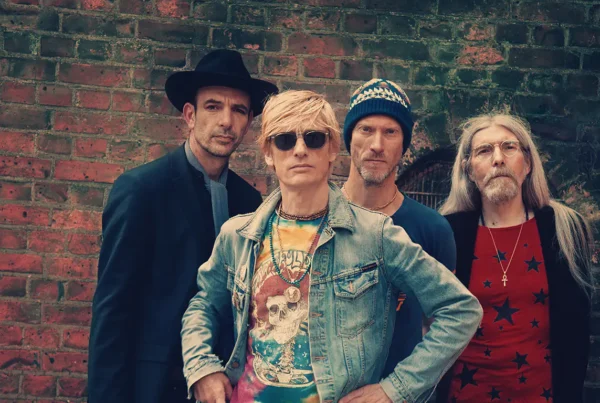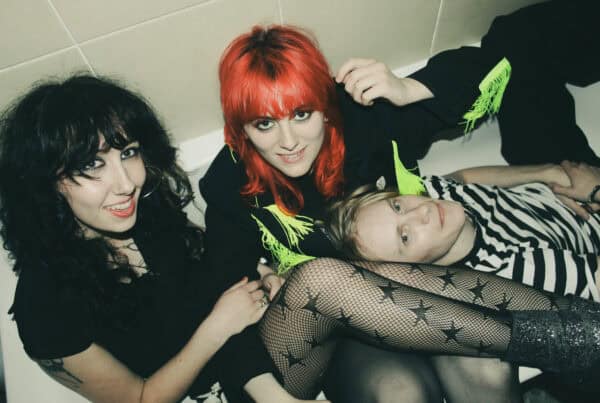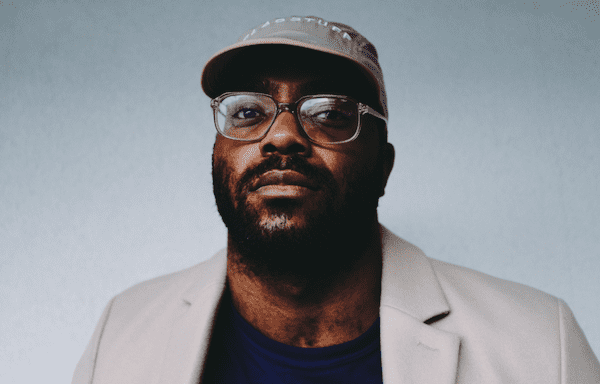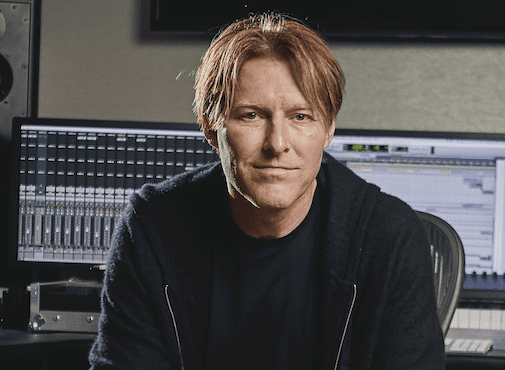The question isn’t ‘what has Alan Raw done?’ – you’d do better to wonder what he hasn’t. With an illustrious career in the creative industries, spanning from hosting BBC Introducing for Humberside & West Yorkshire, to being CEO of The Creative and Cultural Company, not to mention a life-long passion for drumming (he performs in bands as well), Alan Raw has done it all. To describe him simply as successful is true, but isn’t enough; far deeper than his accomplishments, it’s Alan Raw’s approach to his work, the philosophies he adopts, that makes this man not only a pleasure to talk to, but a pleasure to read about.
[like_to_read][/like_to_read]
“I do lots of jobs which are loosely around art.” Raw tells us, “That could be visual art, it could be music, or performance. It’s very much around arts and business – especially the social part of business. I’m CEO of The Creative and Cultural Company which is a social enterprise, and that’s been going on in one form or another for 25 years now. It has never had any funding: it’s a not-for-profit organisation run by a board of directors who are all volunteers; we do have sponsors – not cash sponsors – but sponsors who help in other ways. I suppose over the years I’ve become quite good at helping other people start social enterprises and helping new entrepreneurs who want to work in a more social and democratic sort of way. I also coach quite a lot, performers, artists, other CEOs – anyone who could do with a little bit of help. I present BBC Introducing in Humberside and West Yorkshire: the physical DJing of it, the presenting and explaining as much as I can about an artist as I can so other people can engage with them. I listen to tunes along with my team to try and give people who may have never released anything, who may have only recorded things in their bedroom – but have incredible talent – and give them the chance to go from where they were to getting played on maybe Radio 1, 1 Extra, 6 Music or something like that – and hopefully a live session.”
Bearing that in mind, it should come as no surprise that Alan Raw has not had a holiday in over 16 years. A fact like that should evoke gasps from the audience, so what is it about his job that he just can’t keep away from? How do you work every day for 16 years and stay motivated to carry on? “I like the environment in which I work, and I want to make that more normal. I want people to work with each other; help each other; empower each other, rather than the usual metaphors which relate to business that are about ‘battles’. I don’t want that to be the metaphor for my environment that I work in. I just enjoy the process of seeing someone do well. I actually enjoy meeting someone who has a need which I think I can help with. I don’t want them to be in need, but if they turn up with one I can help with then it’s like “Oh, great!”, and I’ll help with that. I always feel the need to be supporting a new team. With bands especially, I like to cheer someone on and I get great delight from seeing them succeed – even better if they know they have, and it makes them happy. I’m a Buddhist, and it’s kind of common in my circles to be happy by helping other people, so it fits with my spirituality. I’ve got some skills: I want to use them, not lose them. I curate a lot, I curate a lot of exhibitions and I teach other people how to do that as well. It keeps me thinking.”
With a finely-honed ear for music, as well as a talent for drumming that has led him to be profiled by none other than John Peel on Channel 4, Radio 1 airplay and tours all over the world, what would Alan Raw advise musicians on what they need to do to stand out in their circles? “I was lucky enough to have been born into a musical family. My dad made it very clear to me that I couldn’t just be the drummer in his band. I had to spend the other 23 hours of the day making the most of the environment I was in. We were constantly travelling, constantly playing music at different festivals and things like that. Most of the time I was just waiting to do the same myself. My dad introduced me to sound engineers, light engineers, roadies, filmmakers, managers, photographers – everything – and said, “Can I leave my lad with you for half an hour, because he’s interested in what you’re doing.” A lot of that kind of thing happened. I was encouraged to do more of that and that’s what I’ve always done. If you can learn even a little bit about what everyone else is doing in your industry, then it stands you in much better stead in two ways: one is that you are able to ask other professionals for what it is that you need from them in a much more coherent way, you have a much better understanding of what that means, the weight of what it is that you’re asking them to do, and what it should cost as well. The other thing is you’re able to do a lot of things yourself on a budget. You’d recognise that you might want to get something remastered by a professional in the future, but you can certainly record things yourself. It means that you can be much more financially sustainable in your early days of being a musician.”
In the creative industries, the unwritten rule is that if you want work, you have to go to London. Though this is a widely held preconception, just how true has Alan Raw found that to be, in his experience? “In Hull we have no problems with internet signal. It doesn’t really matter where you are, as long as you’ve got the internet, you’ve got a phone, and you’re able to make enough money from something to keep those things. It depends on your connections and how well you manage them. You’ve got to be organised. It doesn’t really matter how many resources you have, it’s more about how you organise yourself. You can know ten million people and not benefit from any of those relationships. It’s about turning up on time to things, making arrangements to meet people for a cup of tea or a cup of coffee, having conversations and seeing where you can go with that. None of that is going to have an effect on helping you unless you have an idea about what it is you want to have happen. It’s about doing what is sometimes called ‘future pacing’, which is thinking, When everything’s what I want it to be, and I wake up that morning and it’s my perfect day doing what I do, what do I see, what do I feel, what do I hear and what had to be true for that to be possible? and then just work backwards. Then hopefully, everyone you meet and every resource you come across, you won’t just filter out, but you’ll notice it and think, That’s one of the things I need. People can very easily be tricked into thinking that they need to look for what they need all the time, when you really ought to be thinking about what you can give rather than what you can get. It is a trading situation. You are trading with people. It’s just the simplest things that people do all the time, like band exchanges – they would never exist unless one of them thought, I can actually help the other one out. If you’re constantly thinking, What can I get out of this? What does the world owe me? What can I take from these situations? – then it’s not going to be a trade-off. What you need to be thinking is, Okay, what can I do for someone else, and does that have a value? If it does, what can I weight that against, and can we swap? You’ll get a very real feeling for what something is worth in time.”
Broadcasting is almost as covetable as work in music. Undoubtedly, many people regard Alan Raw’s job as host of BBC Introducing for Humberside & West Yorkshire with envy. “I got the radio show completely by accident. I was organising a festival. At the time I was the music worker at The Warren, and when I arrived there in ’99, I brought with me a festival called Impro Festival which I started in ’97 in the youth service when I was an arts officer there. I said to Keith at The Warren – who isn’t there anymore, but he’s a legend – “I’d like to involve The Warren in doing this.” One thing led to another, I ended up working as a youth worker at The Warren and bringing the festival with me. At the time, the BBC were looking to work with a festival, so we ended up working together. I was putting on lots of acts: some big names as well as local acts, trying to bring them forward by putting them alongside other people. I was introducing bands onto the stage because I didn’t know anyone else who did that, and I was DJing a bit, putting tunes on in between, and the BBC said, “This would sound quite good on the radio”, and at the time it fitted in with things that they were doing. It was all accidental. I did point out to the BBC three or four other people who I’m convinced would do a better job than I could. I’m a drummer, and they were singers. I said, “You want somebody who’s good at talking to people. You need these guys, not me.” But they insisted it was myself that did it. It was supposed to be six-week project – and I’m still there. Every show could be the last!”
Due to the competitive nature of the creative industries, with hordes of people vying for a single position, what qualities set you apart from the rest? “I’m always impressed the most by people who are proactive. People who notice what needs to happen without it needing to be pointed out to them because they just have their own opinion of it and think, Okay, what, to me, is a good job? If it’s done well, it’s like this. Then they notice how that fits against what’s there. If they think, Well, that could be better, then they have a think about how and if they could help with that. Then they speak with you and say, “I think this could be better. It’s great, but it could be even better if it was like this, and I can help with that.” Either that, or they don’t say anything, because they see something that needs doing and they just do it. Apart from that, be reliable. Put the hours in, be there early. Just go the extra mile and do a bit more. You’ve got to be creative; to get to think creatively, you’ve got to get to know yourself, your skills, the people around you and their skills. It sounds really simple, but it’s really hard to do. You’ve got to train yourself to think better. The world actually doesn’t owe you anything. You’ve got your basic human rights, and one of those isn’t ‘must have a great job’.
For most of us, it’s irrefutable that Alan Raw is successful – just look at what he’s achieved. But success isn’t necessarily quantified by the boxes you’ve ticked: “When I know that I’m giving more than I’m taking, then I think that’s a good measure of whether or not I’m successful. Sometimes to get to be successful in something, you’ve got to take. You’ve got to earn the money, you’ve got to use resources and ask for favours and pull all of that together and work hard. But when you get to the position where you can actually be giving, rather than taking, and you’re doing stuff for the people around you, I think that’s maybe a reasonable measure of you doing well.”
As a veteran of the creative scene, particularly in Hull, without a doubt Raw will have more than a fair few moments of glory, be those for himself, or those he’s mentored. What are the highlights of his career thus far? “Well, I’d like to think that I haven’t finished yet. I’ve got close to being successful. One measure of success for me is making myself redundant. In the Creative and Cultural Company, for example, if I’ve made myself redundant, that means I’ve created a sustainable and continuous thing. If I drop dead today – I will one day – everything will carry on, it will be successful for everyone who’s in it and there will be no detrimental effect to the organisation. That would be empowering. But it goes much deeper than that. It’s the same for my son; I’d like to think that I’m a good enough dad to get him to a point where he doesn’t need me anymore. The same for my partner. I’d like to think it about my job, the radio, too. Can you imagine if I managed to play some small part in getting the local music scene to get to a point where it doesn’t need us anymore? Imagine a point where all the artists are much so involved in running it themselves, managing it all themselves, own the infrastructure, manage all the organisations that are required, and keep it democratic. Wouldn’t that be amazing? That’s proper success. It’s all about making yourself redundant.”
What can the future possibly hold for Alan Raw? Though he shows no signs of stopping, he is planning on slowing down: “I want to get to more gigs. I’m playing less gigs now, as a drummer, so surely that means that I get to go to more gigs? But, other things fill the vacuum, don’t they? I’ve got lots of exhibitions going on as a curator, all kinds of things, workshops, masterclasses – all that type of thing. Also, my radio shows are on a Saturday night, which is when there are a lot of gigs I’d like to be at. Apart from that, I’d really like to work towards a time when I can reflect on everything, turn up to some of the events that I’ve been involved in in the past, cheer people on, enjoy watching artists, go to exhibitions that I have nothing to do with, read books by people much more intelligent than myself, and maybe get to the point where I can step away from Creative and Cultural Company, knowing that it is totally sustainable and doing well. Then actually I might be able to do some art again – I am actually an artist, I just don’t get a lot of time these days.”
When he does take a step away from work, what does Alan Raw do to unwind? “I’m part of a number of groups and organisations which area about thinking, about creative thinking, coaching, that kind of stuff. They’re some really nice people who I meet with, spend time with and just think about stuff with. One of my favourite things we do is debate. There just isn’t enough debate going on in the world. There’s plenty of arguing, but there doesn’t seem to be many decisions being made with democratic debate. It seems more to do with social media and reinforcing views that you’ve already got. I try and spend as much time as I can in groups, informal and formal, doing that sort of thing, trying to make ourselves better. A lot of that comes from my days at The Warren, a place that is run democratically by young people, so, I know that sounds like work to some people but it’s actually what I love and end up doing a lot outside of work.”
Alan Raw has always been deeply interwoven into Hull’s creative industry. Since being bestowed the title of City of Culture in 2017, Hull has thrived, finally able to support its burgeoning talent, elevating it being a national – if not international – point of interest. “I am one of many people in this area who has worked really, really hard: people like Stewart Baxter, Mez Green, Pat Pretorius from The Talks, Nigel Holmes, to make, collectively, everything better. I think we’ve come a very, very long way to creating an infrastructure where musicians can run themselves. We’re not far off it now. 53 Degrees North was a good indicator of that – that was a quality event, run by people in the music industry from this area. It’s a very exciting time. I’ve just been very careful not to get over-excited too early, but it is a very exciting time being at that point where it might just all be running itself really well – but there’s a lot of work left to do to get to that point. Even if we get there, we need to make sure it stays. There are so many people around me who are doing so much more than me, and much better work than me, to make that happen. I just want to support them and keep cheering them on. Katy Noone, producer of BBC Introducing, works so hard. She and John Anguish, an amazing engineer, taught me everything I know about radio. I think we’re really close to that goal, of being run by the people and being democratic. We’ve also gone through a time recently – we’re kind of still in it, politically – where corporate culture overrides community. I believe with all my heart in community. I know that there are better models of making things work. It is about cultural democracy. It’s where my motivation lies and what I want to work towards.”






